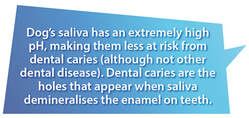 Dental care is for everyone. This week is about dental care for dogs and cats, as dental health for rabbits and rodents is a different bale of hay all together. If we’re being honest, there aren’t many of us who are on the ball and in the know when it comes to our pet’s dental health. When it comes to dogs, many owners feel that they can just give them a ‘specially designed’ dental chew every day and they all good, right? Well, maybe not. Good oral hygiene is an important and often overlooked part of your pet’s overall health and wellbeing, whether they’re a little nipper, golden oldie, cross breed or top-notch pedigree. Think about the last time you had a tooth ache, I try not to myself, but my point is you were probably miserable. Luckily for you, you are a human with thumbs and the ability to decide to take some painkillers or tell people to watch out because you’re not in a bad mood, you’re in pain; and you have reluctantly booked into the dentist this afternoon. Now imagine you’re a cat or dog suffering the pain of a tooth ache or sore gums. This not only has health and welfare implications but can also lead to serious behaviour problems. A good example of this is a condition in cats (particularly noted in Burmese cats) called ‘Feline orofacial pain syndrome’ quite the mouthful I know; but this is where dental problems are causing the cat so much pain that they paw at their own faces over and over and over again, until it is so raw that it often bleeds! There are some other signs that your pet could be suffering for dental discomfort such as:
For an older cat or dog, it can be stressful for both you and your pet to take a look at what’s going on. I know the only way my cat would let me see her teeth was if she was going to plant them in my hands during play time! But there are some early warning signs to watch out for:
Even the saying ‘getting long in the tooth’; this apparent growing of upper canine in old pets is caused by periodontal infection forcing the tooth out of it socket. A dental infection can also have affects on other body systems, if there is a high bacteria level or if the pet is immune compromised or suffering from another illness. So as any dentist will tell you, prevention is better than cure and maintaining regular oral hygiene routines will help keep those tails wagging. 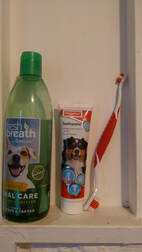 Here are the things that I do for my dog’s Dental health:
There is a product that I’m going to start using next week- Beaphur tooth gel. This product is suitable for cats and dogs, and cleans teeth without the use of a brush. The gel contains enzymes that fight the bacteria that cause bad breath and breaks down plaque. Any plaque that’s not brushed away would combine with calcium to form tartar, but this gel has ingredients that bind to calcium, to prevent further formation of tartar. This product can be used 2-3 times a week, so I’m hoping that it will be an easy addition to the pet’s routine. I’ll let you all know how it goes! A special thank you to Beaphar Uk training for the graphic and teeth pictures
0 Comments
 Why worming your pets regularly is important as a preventative and not just a treatment. I’d like to tell you about a friend of mine and her little dog, we’ll call her dog Daisy for this story. When Daisy’s owners went on holiday, their daughter, my friend was looking after her when she noticed kept shuffling her bottom along the floor. She contacted her parents to find out when Daisy was last wormed but as they were on a long-haul flight she didn’t hear back straight away. After we had a chat about Daisy, she decided to give to give Daisy a one does wormer and soon after Daisy’s poo revealed a rather large worm burden. Unfortunately, Daisy was still fussing around her back end and seemed uncomfortable. So, having still not heard back from her parents, my friend decided to take Daisy to the vet. Upon examining her the vet found that during her bum shuffling episodes Daisy had caused cuts and grazes to her genitals and anal area. She had been licking them and making them even worse. In addition, she also needed to have her anal glands expressed, antibiotics and a cream which had to be applied twice a day. When the parents were able to get in contact, they simply said that they only gave Daisy a worming treatment when they saw that she was itching her bottom. Unfortunately, this treating worms, once symptoms become noticeable, rather than preventing them seems to be quite common. A lot of owners seem unsure about how often they should be worming their pets or why it’s so important. The most common parasitic worms are round worms and tape worms. All dogs and cats are susceptible to worms through out their life and they can pass them on to other animals and even people! There are three main reasons that pet owners must treat their dogs and cats against worms regularly:
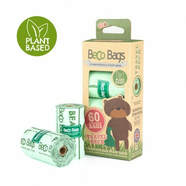 You may have seen a few weeks ago I did a blog about plastic pollution, particularly plastic waste in the pet product industry. Here at the Pet hotel I often find myself trying to reduce our waste, not an easy task when you consider how many pets live here as well as the humans! But really we all know that waste and over consumption is a problem and what I feel (and I think other people do too) is that we are tired of hearing about all the problems, all the shocking images of rubbish strewn beaches. What we really want now are solutions! There are my top 3 things that I have already done here at The Pet Hotel, that I think can be helpful for every pet owner. There are loads more but it's easy to be overwhelmed and it's much more achievable to make small changes stick. Some them will actually save you money as well as reduce your impact on the environment.
2. Home made cleaner and disinfectant - This one is really easy and will save you money! I make my own cleaning spray for use for both the pets and around the house. The key ingredient is distilled white vinegar, buy the largest quantity you can manage, as this will give you the biggest saving. I buy around 20litres at a time on line, so far I have not needed to buy any more and that was over a year and half ago. I reuse the spray bottles from the cleaners I already had after they were empty and rinsed them out. For a general purpose spray you only need about 1 part vinegar to 10 parts water. Now if the thought of a vinegar smells puts you off (generally it makes me want chips!) you can add a few drops of essential oils (and really you just need a few drops) to get that nice smell. I put in used lemon and citrus peels in mine, which I collect from my local cafe! If you're spending money on new cleaning sprays, for that "clean fresh" smell you really are just wasting your money and contributing to more plastic and chemicals being used and produced. 3. Switch to a green energy supplier - Honestly this is one the best things we have done to reduce our overall foot print. As it turned out for us the cost of the tarif was actually less than we were paying with our previous big supplier. They supply 100% renewable electricity and 10% green gas. For every unit of or energy that we use they make sure a unit is produced and put back into the grid by a renewable source. They source energy from solar, wind and hydro generators from across the country. The green gas they supply goes from renewable sources too, like farm and food waste.
They buy the energy from independent energy generators across the UK and where ever possible they have a direct relation with these generators to purchase their output. To cover any shortfalls, they purchase renewables from the wholesale market. Their energy sources vary from solar and wind to hydro or anaerobic digestion. If you'd like to find out more about switching energy energy supplier please get in touch via the contact page :) |
AuthorRebecca, owner and founder of R and R Pet services. Archives
May 2022
Categories |
Thank you for visiting!
Copyright © 2016
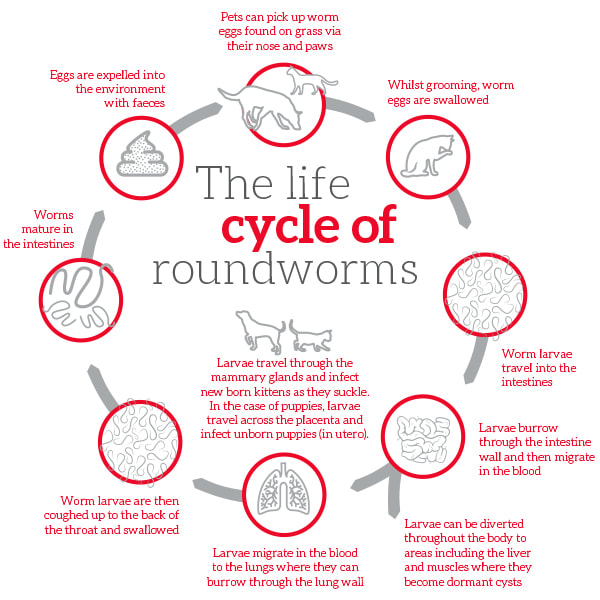
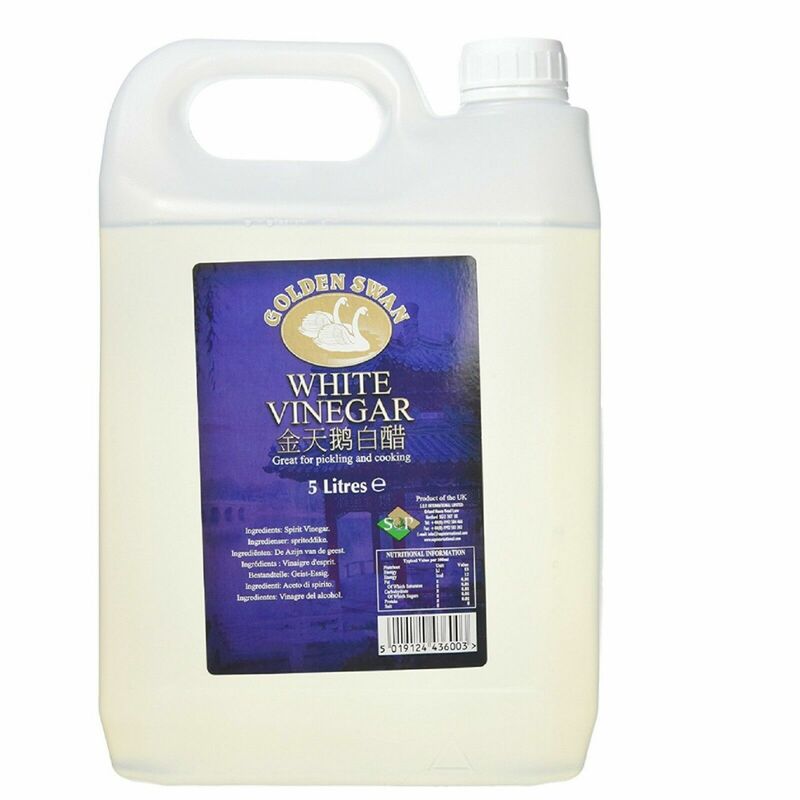
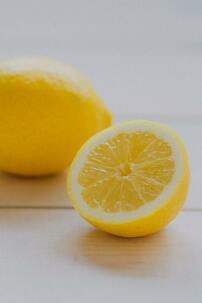

 RSS Feed
RSS Feed